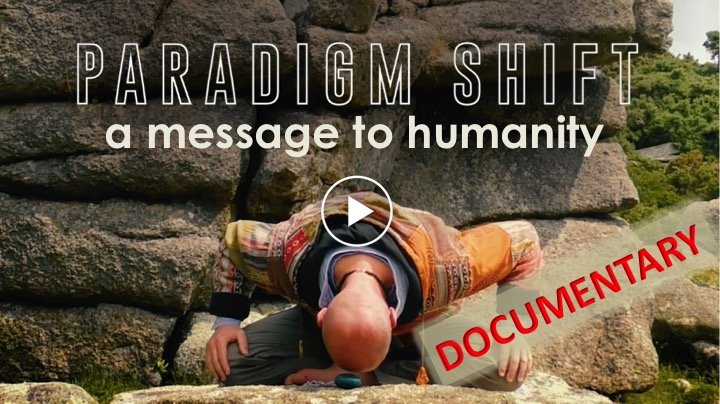Ocean Acidification
 I just came across this quite alarming report in the UK's Independent about how the acidification of the Arctic Ocean is happening at a much faster rate than previously thought. It's caused of course by the increasing atmospheric CO2 which warms the ice, melts it, then is absorbed into the ocean. It's resulting in the destruction of the delicate balance of the eco-systems. I share the story not to spread fear. As always, it's to cause people to confront the truth about what's really happening. If it generates inner tightness, we must work to accept it, and then allow an expansion of consciousness through it to inspire appropriate Right Action. It builds an accurate picture of authentic reality, thus giving the soul the possibility to respond to the full landscape...
I just came across this quite alarming report in the UK's Independent about how the acidification of the Arctic Ocean is happening at a much faster rate than previously thought. It's caused of course by the increasing atmospheric CO2 which warms the ice, melts it, then is absorbed into the ocean. It's resulting in the destruction of the delicate balance of the eco-systems. I share the story not to spread fear. As always, it's to cause people to confront the truth about what's really happening. If it generates inner tightness, we must work to accept it, and then allow an expansion of consciousness through it to inspire appropriate Right Action. It builds an accurate picture of authentic reality, thus giving the soul the possibility to respond to the full landscape...
In sharing the article, I draw attention to the fact that it still takes the view of concern about impact on human life and what that means to businesses that exploit the oceans for human consumption. It still demonstrates a rather low level of consciousness therefore in that it doesn't cherish the balance of the oceans and marine life for its own right! The main stream only seems to take things seriously when human life is affected. One day the realisation will dawn that everything is interconnected, and therefore what happens to one part, affectively happens to us, especially in an intimate eco-system such as the earth. For me, this opened a level of compassion which saw the balance of the natural order of life itself, so much more important than my own individual needs or even my life. How do you feel about it?...
- The Arctic Ocean is absorbing carbon dioxide at a far greater rate than was previously thought, threatening fish stocks and the livelihoods of indigenous peoples, a report suggests. The surface, or top 100 metres, of the ocean is now about 35 per cent more acidic than it was at the start of the Industrial Revolution in the late 18th century, with potentially huge implications for Arctic ecosystems. The changing chemical make-up of the seawater threatens to wipe out large numbers of herring, cod and capelin – a small fish largely used as animal feed – as well as plankton and crabs. This could affect the livelihoods of indigenous populations that rely on fishing and hunting, for example, the Canadian Inuit, as well as reducing food for birds and larger marine mammals such as walruses. The acidification could also put further pressure on the rapidly diminishing global supply of fish for human consumption. The report’s lead author, Richard Bellerby, of the Norwegian Institute for Water Research, told The Independent: “Sea urchins, in particular, are very sensitive to acidification and are a major food source for marine mammals like walruses, as are some of the plankton, which are important food for fish. “This could have significant implications for large economically important regions like the Canadian archipelago, the waters north of Alaska and the Barents Sea.” Parnuna Egede, an adviser to the Greenland branch of the Inuit Circumpolar Council, which represents the 160,000 Inuit people living in Alaska, Canada, Greenland and Chukotka in Russia, said: “The Arctic communities are extremely worried about the effects on our ecosystem because we so deeply rely on the Arctic Ocean and its animals.” The Arctic Ocean takes in the coastlines of the US, Canada, Russia, Iceland, Sweden, Denmark, Norway and Finland. Among the world’s seas it is particularly vulnerable to acidification because of a “triple whammy” of conditions, said the report, to which 60 experts contributed. Recent trends that have resulted from global warming have served to accelerate the process of acidification. The rapid shrinking of Arctic sea ice to a record low last year left a greater surface area of sea through which to absorb the atmospheric carbon dioxide (CO2). Additionally, the increasing flows from rivers and melting land ice have delivered another blow since freshwater is less effective at chemically neutralising the impact of the CO2. Meanwhile, cold water absorbs more CO2 than warmer water, while ever-increasing carbon emissions mean there is even more to absorb, the report said. “Ocean acidification is likely to affect the abundance, productivity and distribution of marine species, but the magnitude and direction of change are uncertain …. Experiments show that a wide variety of animals grow more slowly under the acidification levels projected for coming centuries,” the report said. Report source...The Independent
- 12673 views




 Check Latest EVENTS 2024/25
Check Latest EVENTS 2024/25 Openhand 5D Ascension Program
Openhand 5D Ascension Program


 Break through Your Tightness
Break through Your Tightness


Add new comment